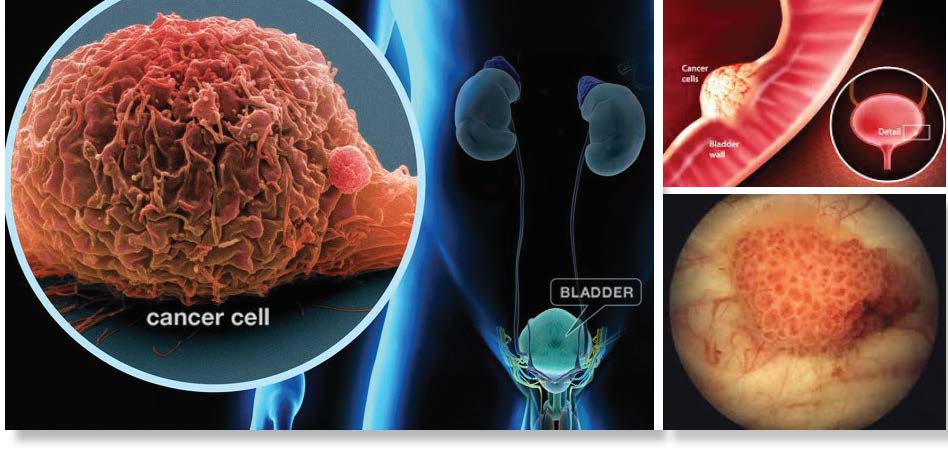
Intravesicular Toxicology, Pharmacokinetics and Efficacy Studies at CBI
Bladder cancer generally effects older men. Most bladder cancers start in the innermost lining of the bladder, which is called the urothelium or transitional epithelium. As the carcinoma grows into or through the other layers in the bladder wall, it has a higher stage, becomes more advanced, and can be harder to treat. Over time, the cancer might grow outside the bladder and into nearby structures. It might spread to nearby lymph nodes, or to other parts of the body. (When bladder cancer spreads, it tends to go to distant lymph nodes, the bones, the lungs, or the liver.) Common tumors include transitional cell carcinoma, squamous cell carcinoma, sarcomas, adenocarcinoma, and small cell carcinoma.
Intravesicular dosing with cancer chemotherapeutic agents is an important and effective route of administration in patients undergoing treatment for bladder cancer. New drug candidates are assessed in preclinical and toxicology studies using this route of administration. Mice, rats and dogs are commonly used for these assessments. This route requires highly skilled methodology to administer the test article without traumatizing the bladder.
In the treatment of bladder cancer, traditional chemotherapeutics such as cisplatin, gemcytobine, carboplatin, methotrexate, vinblastine, doxorubicin are often used. More recently, immunomodulators such as BCG and interferon are used locally.
A new class of agents, Immunomodulators and Immune Checkpoint Inhibitors that block a protein called PD-1 is under intense assessment. PD-1 is found on the surface of T cells, which are a type of white blood cell that directly helps the body’s immune system fight disease are newly approved or undergoing FDA assessment. Targeted therapies and anti-tumor viral vaccines are in development.
At CBI we conduct intravesicular toxicology, pharmacokinetics and efficacy studies using this difficult route of administration in these species. We are experienced with new treatment modalities including Anti-tumor Viral Vaccines, Immunomodulators and Immune Checkpoint Inhibitors in both normal tumor bearing, xenografted, syngeneic and orthotopic rodents. We also conducted pharmacokinetic studies via traditional and intravesicular routes and both toxicology and efficacy assessments.
*CBI Note: Singer, Kenny Rogers died at age 81 from natural causes at home in Georgia, his rep confirmed in a statement. Rogers passed away peacefully at home from natural causes under the care of hospice and surrounded by his family. According to Radar Online in May of 2019, then-80-year-old Kenny Rogers was battling bladder cancer — the same disease that caused him to retire from the public eye in 2018.
Contact Comparative Biosciences, Inc. to discuss a scientific study program for Bladder Cancer Studies and Services.
Comparative Biosciences, Inc. · Phone: 408.738.9260
– CUSTOM INTRAVESICULAR TOXICOLOGY, PHARMACOKINETICS AND EFFICACY STUDIES UPON REQUEST –


